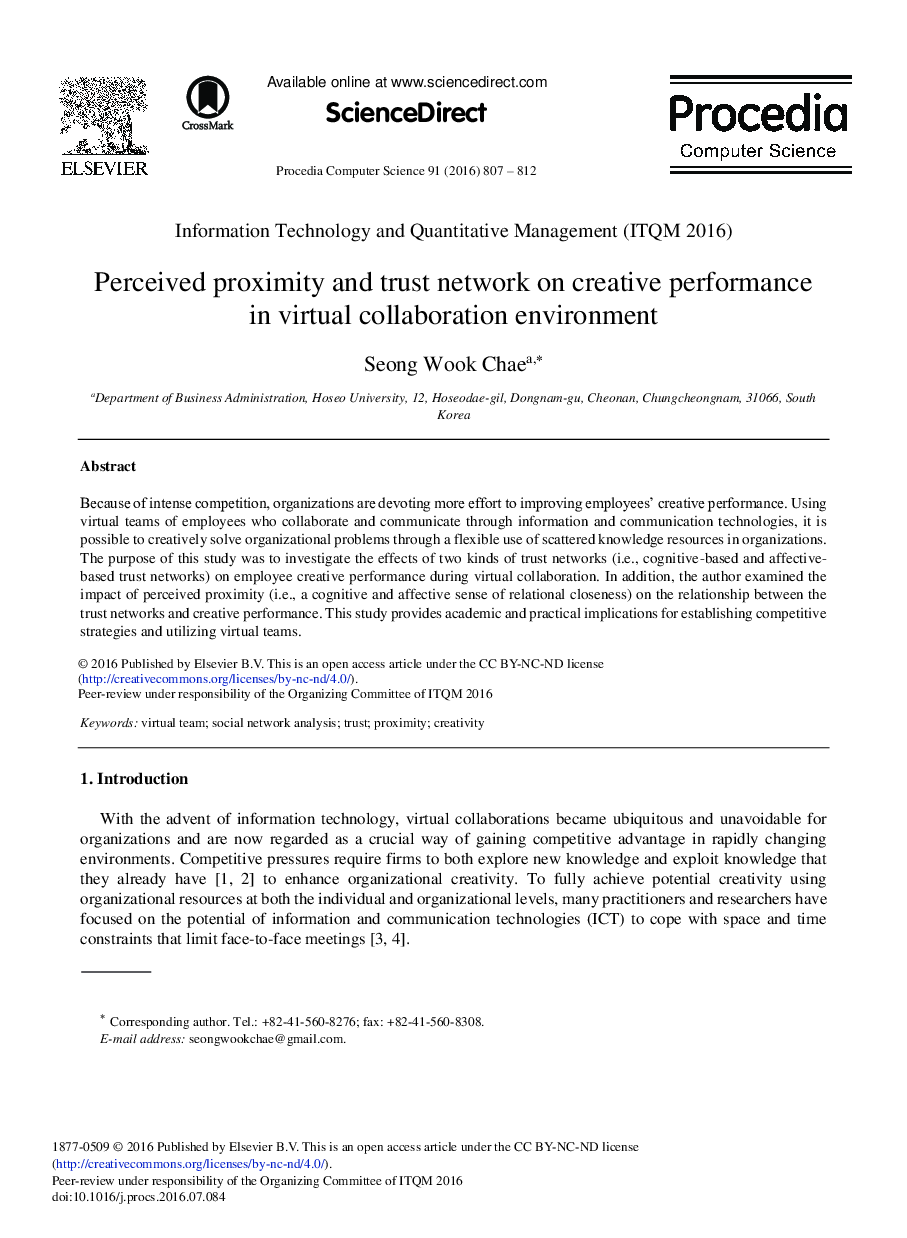| Article ID | Journal | Published Year | Pages | File Type |
|---|---|---|---|---|
| 488397 | Procedia Computer Science | 2016 | 6 Pages |
Because of intense competition, organizations are devoting more effort to improving employees’ creative performance. Using virtual teams of employees who collaborate and communicate through information and communication technologies, it is possible to creatively solve organizational problems through a flexible use of scattered knowledge resources in organizations. The purpose of this study was to investigate the effects of two kinds of trust networks (i.e., cognitive-based and affective-based trust networks) on employee creative performance during virtual collaboration. In addition, the author examined the impact of perceived proximity (i.e., a cognitive and affective sense of relational closeness) on the relationship between the trust networks and creative performance. This study provides academic and practical implications for establishing competitive strategies and utilizing virtual teams.
